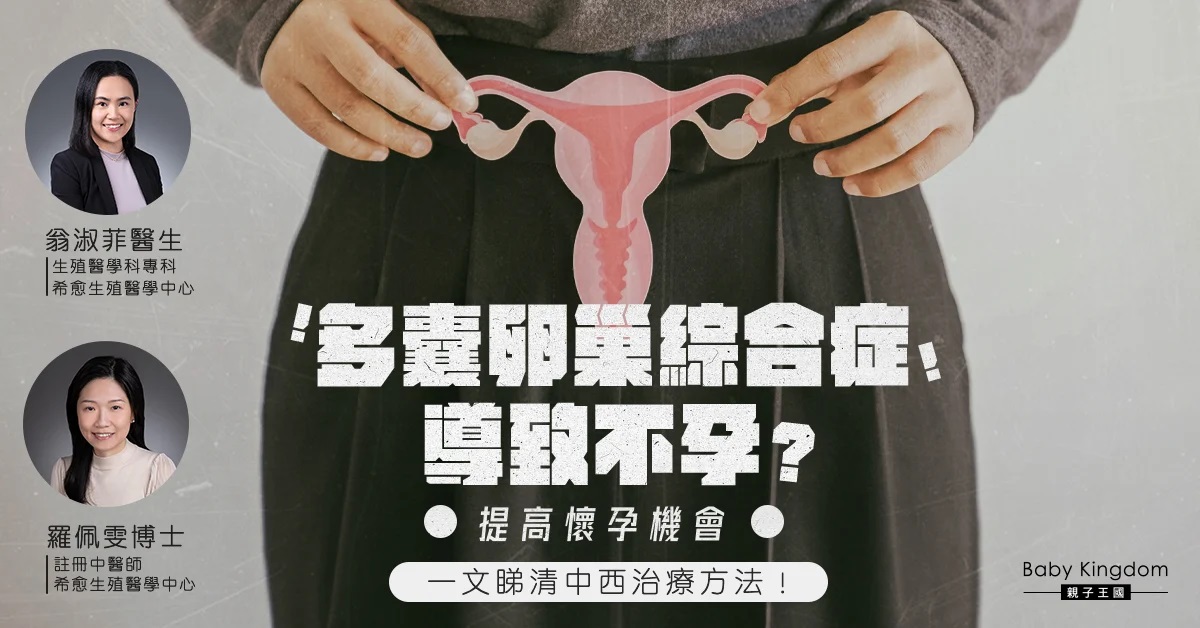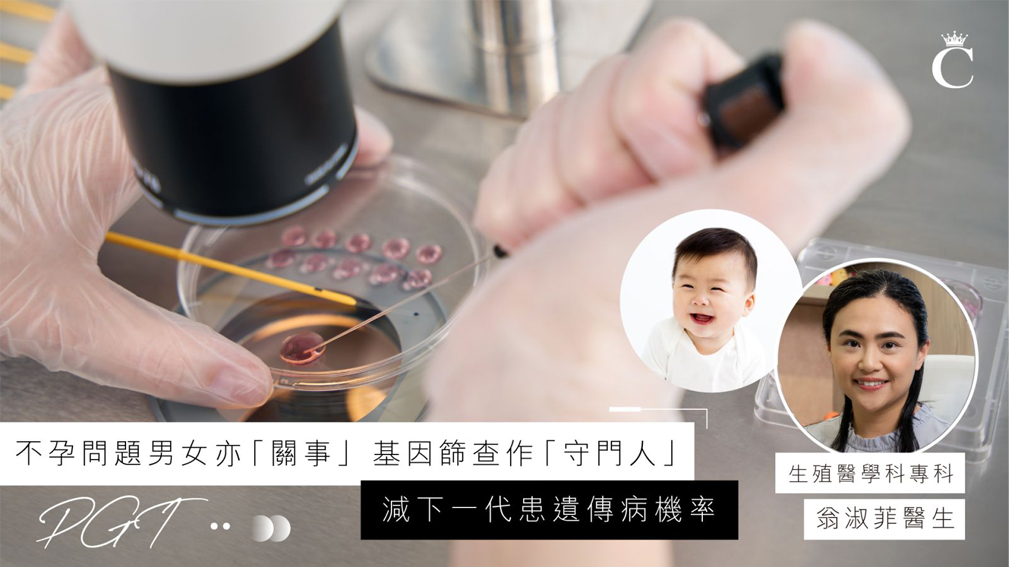
Dr Sofie YUNG Shuk Fei
Specialist in Reproductive Medicine
Clinical Assistant Professor of Practice, Department of Obstetrics and Gynaecology, LKS Faculty of Medicine, HKU
Qualification
- MB BS (HK)
- FRCOG
- FHKCOG
- FHKAM (Obstetrics and Gynaecology)
- Cert HKCOG (Reprod Med)
Scope of Services
Fertility assessment and treatment:
- Female and male fertility assessment
- Infertility: diagnosis and treatment
- Tubal patency test: HyFoSy or laparoscopic chromotubation
- In-vitro fertilization
- Pre-implantation genetic testing (PGT)
- Intrauterine insemination (IUI)
- Ovulation induction (OI)
- Egg freezing
- PCOS: diagnosis and treatment
- Repeated implantation failure
- Recurrent pregnancy loss (two or more times)
- Hysteroscopic assessment and treatment of endometrial polyp, uterine septum and intrauterine adhesions
- Laparoscopic tubal surgery for tubal blockage and hydrosalpinx
- Other reproductive surgeries
Gynaecology:
- Cervical screening (Pap smear, HPV testing) and HPV vaccine
- Gynaecological ultrasound (2D and 3D)
- Uterine fibroids
- Ovarian cysts
- Endometrial polyps
- Endometriosis: Pelvic pain
- Polycystic ovary syndrome (PCOS)
- Menstrual disorders
Gynaecological Procedures:
- Colposcopy and related procedures including LEEP
- Hysteroscopic surgery: Polypetomy, myometomy, division of uterine septum, division of adhesions, etc.
- Laparoscopic and open surgery: Myomectomy, hysterectomy, ovarian cystectomy, etc.
- HIFU for uterine fibroids and adenomyosis
Pregnancy care:
- Non-invasive prenatal testing (NIPT)
- First trimester pre-eclampsia screening
- Early pregnancy assessment (Miscarriage and ectopic pregnancy)
- Recurrent miscarriages: assessment and treatment
- Ultrasound guided manual vacuum aspiration (MVA) for treatment of miscarriage
- Medical and surgical termination of pregnancy
Reproductive health:
- Premarital and prepregancy screening
- Contraceptive advice and service, including pills, injectables, IUD insertion, contraceptive implant, female sterilization
- Emergency contraception: oral medication or IUD insertion
- Adolescent gynecology
- Sex therapy for female sexual dysfunction (including vaginismus)
- Menopausal health: including hormonal replacement therapy (HRT)
Noble Publication
- Effect of basal serum testosterone level on the ovarian response and the cumulative live birth rate in infertile women undergoing in vitro fertilization
- Hyaluronic acid-enriched transfer medium for frozen embryo transfer: a randomized, double-blind, controlled trial
- Use of oral progestogen in women with threatened miscarriage in the first trimester: a randomized double-blind controlled trial
- Comparison of antral follicle count and serum anti Müllerian hormone level for determination of gonadotropin dosing in in-vitro fertilization: randomized trial
- Randomized controlled trial of transcutaneous electrical nerve stimulation for pain relief during transvaginal oocyte retrieval using conscious sedation: study protocol for a randomized controlled trial
- The effect of 12-month dehydroepiandrosterone supplementation on the menstrual pattern, ovarian reserve markers, and safety profile in women with premature ovarian insufficiency
- A randomized double-blind controlled trial of the use of dydrogesterone in women with threatened miscarriage in the first trimester: study protocol for a randomized controlled trial
- Late presentation of a variant of Herlyn-Werner-Wunderlich syndrome
- The effect of 7 days of letrozole pretreatment combined with misoprostol on the expression of progesterone receptor and apoptotic factors of placental and decidual tissues from first-trimester abortion: a randomized controlled trial
- A questionnaire study on the acceptability of self-sampling versus screening by clinicians for Group B Streptococcus
- Randomized, controlled, double-blind trial of topical lidocaine gel and intrauterine lidocaine infusion for pain relief during saline contrast sonohysterography
- Endometrial vascularity is lower in pregnancies with pregnancy-induced hypertension or small-for-gestational-age fetus in live birth after in-vitro fertilization
- Ovarian osteoma mimicking a teratoma on ultrasound
- A randomized comparison of pharmacokinetics of a single vaginal dose of dry misoprostol or misoprostol moistened with normal saline or with acetic acid
Admission Rights
- HK Sanatorium Hospital
- Gleneagles Hospital
- St Paul Hospital
- HK Adventist Stubb Road
- Canossa Hospital
- Baptist Hospital
- HK Adventist (Tsuen Wan)
- CUHK Medical Centre
- St Teresa Hospital
- Union Hospital
- Matilda International Hospital
Services by the Doctor
Abnormal Menstrual Cycle & Uterine Bleeding
Gynaecological OncologyObstetrics and GynaecologyReproductive Medicine
Menstrual cycle and abnormal bleeding refer to variations in the length, flow, or duration of the menstrual cycle outside the normal range. Irregular menstrual cycles may include intervals between periods that are too long or too short, excessively heavy or light periods, and intermittent bleeding between periods. Abnormal uterine bleeding may involve bleeding outside of the menstrual period.
Detail
Adenomyosis
Gynaecological OncologyObstetrics and GynaecologyReproductive Medicine
Adenomyosis is a condition that affects the uterus in women. It occurs when the tissue from the inner lining of the uterus (endometrium) breaks through the uterine wall and develops into new endometrial tissue within the uterine muscle layer. This growth can cause the uterine tissue to enlarge and thicken, leading to various symptoms.
Detail
Breast Disorders
General SurgeryGynaecological OncologyObstetrics and Gynaecology
Breast Disorders refer to a series of conditions that may affect breast health. When women notice unusual conditions in their breasts, they often assume they have breast cancer. In reality, most breast diseases are benign, and it is best to seek medical follow-up to determine whether the condition is benign or malignant.
Detail
Cervicitis
Obstetrics and GynaecologyReproductive Medicine
Cervicitis refers to the infected and inflamed condition of the cervical tissue. Cervicitis typically occurs when viruses or bacteria, introduced through sexual activity, miscarriage, childbirth, or uterine procedures, enter the cervix and cause inflammation.
Detail
Contraception
General PracticeReproductive Medicine
Contraception is a measure or method used to prevent pregnancy. These methods can be temporary or permanent, aimed at helping individuals choose whether and when to conceive while engaging in sexual activity.
Detail
Dysmenorrhea
Gynaecological OncologyObstetrics and Gynaecology
Dysmenorrhea, also known as menstrual cramps or period pain, refers to the abdominal pain experienced by women during menstruation. This pain may be accompanied by lower back pain, headaches, nausea, diarrhoea, and other symptoms, and its severity and duration vary from person to person. Dysmenorrhea is a prevalent symptom that affects the quality of life of many menstruating women.
Detail
Endometriosis / Chocolate Cysts
Gynaecological OncologyObstetrics and GynaecologyTraditional Chinese Medicine (TCM)
Endometriosis is a condition where the lining of the uterus grows outside of the uterus and can cause pain, irregular periods and fertility problems in women. The most common places for the growths to appear are the ovaries, pelvis and abdomen, and if it affects the ovaries, it can cause cysts known as "chocolate cysts". Although there is no cure for endometriosis, symptoms can be managed with medication or surgery.
Detail
High Intensity Focused Ultrasound (HIFU)
Gynaecological OncologyObstetrics and GynaecologyReproductive Medicine
HIFU, which stands for High-Intensity Focused Ultrasound, is a non-invasive treatment technique for uterine fibroids. It focuses high-intensity ultrasound waves outside the body onto the uterine fibroids. The focal area generates high temperatures, destroying the uterine fibroid cells without harming the surrounding normal tissue, achieving non-invasive fibroid ablation.
Detail
Hysteroscopy
Gynaecological OncologyObstetrics and GynaecologyReproductive Medicine
Hysteroscopy is a medical procedure used to examine and treat uterine issues. One end of the hysteroscope is equipped with illumination and a camera, allowing doctors to directly observe the condition of the uterine lining by entering the uterus through the vagina without the need for open surgery.
Detail
Infertility
Obstetrics and GynaecologyReproductive Medicine Urology
In medical terms, infertility refers to the inability to achieve pregnancy after one year of regular, unprotected sexual intercourse. This definition applies to women under the age of 35. For women aged 35 and older, the medical community typically recommends seeking professional help if pregnancy has not been achieved within six months due to the decline in fertility with age.
Detail
Labor and Delivery
Obstetrics and GynaecologyReproductive Medicine Traditional Chinese Medicine (TCM)
Pregnancy is about 40 weeks and labor is divided into labor and placenta delivery.
Detail
Laparoscopy
General SurgeryGynaecological OncologyReproductive Medicine Urology
Laparoscopy is a minimally invasive surgical technique that involves inserting a laparoscope and other surgical instruments through one or several small incisions in the abdomen to examine and perform surgery on internal organs. A laparoscope is a long, tube-like instrument with a light source and camera at one end, which transmits images from inside the body to an external monitor, allowing doctors to view the internal situation.
Detail
Ovarian Cysts
Gynaecological OncologyObstetrics and GynaecologyReproductive Medicine
Ovarian Cysts refer to a sac-like structure filled with fluid or solid material formed within the ovaries of females. Ovarian cysts typically develop during ovulation and are generally benign, but certain diseases can also cause them.
Detail
Vaginitis
Gynaecological OncologyObstetrics and Gynaecology
Vaginitis is a common gynaecological condition, referring to the inflammation of the tissues inside the vagina. It can be caused by bacteria, fungi, viruses, or other microorganisms, leading to discomfort and inflammatory responses in the vaginal area."
Detail
Polycystic Ovary Syndrome
Endocrinology, Diabetes and MetabolismObstetrics and GynaecologyReproductive Medicine Traditional Chinese Medicine (TCM)
Polycystic Ovary Syndrome (PCOS) is an endocrine disease affect the female reproductive system. Excessive male hormones are produced by the ovaries. As a result, patients may suffer from irregular period, difficulties in ovulation and reproductively challenged.
Detail
Uterine Fibroids
Gynaecological OncologyObstetrics and GynaecologyReproductive Medicine
Uterine Fibroids, also known as Uterine Leiomyomas, are non-cancerous tumours of the female reproductive organ. They typically develop in the muscular layer of the uterus and are considered benign tumours. Uterine fibroids are a common gynaecological issue, especially among women of reproductive age.
Detail
Uterine Polyps
Gynaecological OncologyObstetrics and GynaecologyReproductive Medicine
Uterine Polyps refer to benign tumours formed by the overgrowth of mucosal cells in the uterine cavity. It can be further classified as an endometrial and cervical polyp based on its growth location. Uterine polyps may cause mild bleeding or discomfort and are typically discovered during routine gynaecological examinations in women.
Detail
Uterine Prolapse
Gynaecological OncologyObstetrics and GynaecologyReproductive Medicine
Uterine Prolapse refers to the partial or complete descent of the uterus from its normal position. The pelvic floor muscles and ligaments usually support the uterus. When these muscles or ligaments become damaged or weakened, the uterus may gradually descend towards the opening of the vagina, leading to what is known as uterine prolapse.
Detail
Pelvic Inflammatory Disease
Gynaecological OncologyObstetrics and GynaecologyReproductive Medicine
Pelvic Inflammatory Disease (PID) is one of the common gynaecological conditions, referring to the condition where there is an infection and inflammation in the pelvic organs of the female reproductive system, including the uterus, fallopian tubes, and ovaries. As PID is often caused by bacterial infections, especially those transmitted through sexual contact, it is more prevalent among young women aged 15 to 44.
Detail













.jpg)


